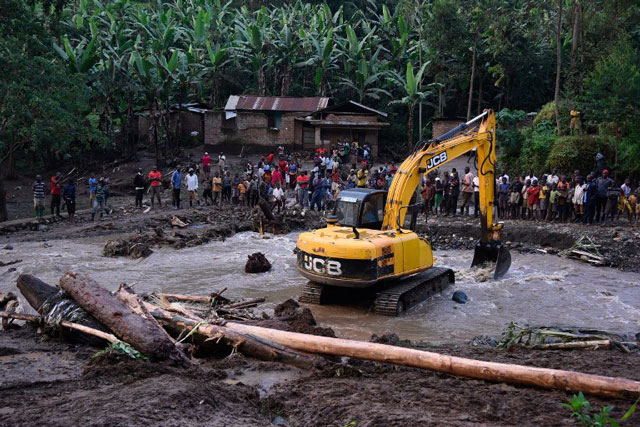On 15th January
2016, The Elders Forum of Uganda (TEFU) and the Inter Religious Council of
Uganda (IRCU) gave Uganda the first ever Presidential debate ahead of the 18th
February General Elections 2016. The debate highlighted key National issues and
laid foundation for post-election dialogue which was realized in the Uganda
National Dialogue Process.
The debate offered a
platform for candidates to articulate their vision for the country and to
interrogate one another on their respective plans for the future. This helped
the public to understand, question the critical pillars of the respective
electoral manifestos of the candidate and fill in the gaps that cannot be
filled in the drama and hype of the ordinary rallies which are given to the
public.
In his poem, “The
debate is the thing”, Justice Ogoola highlighted the heart and soul of the
need for debate; “ Here the nobler ideas and ideals of the mind take pride
or place to titillate the political soul of the electorate, on the campaign
trail candidates stand on the shifting stands of populism, at the debate the
candidates stand on the solid platform of fundamental ideals and critical
ideas. With firm figures and facts to wow the audience with wit and humor to
charm the electorate, the debate soothes the politics of rancor, binds the
wounds of the mundane. Truly the debate is the thing.”
In those words,
Justice Ogoola brought forth the life of debate and the need to provide the
electorate a chance to critically analyse the presidential aspirants. It
brought a new perspective on the importance of issues that matter in our
community, electoral campaign issues like election violence and fear mongering.
The debate was a new tool of politics which revealed that we can practice politics with decorum and respect for all.
Ahead of the
2021 general elections, the urgency and agency of debate as a tool for better
political dialogue and to restore civility in the election cycle becomes viable.
The debates will help Ugandans have a national conversation and a chance for
the presidential candidates to present their vision for the country in a civil
and level headed way.
It brought
critical questioning to the issues that have been characteristic of the NRM
governance, like NRM’s alleged history of election rigging, political persecution,
stifling of the media, arbitrary killings, and corruption, most of which
continue to exist in government.
In the face of
changed legislation to scrap the age-limit in 2018, increased stifling of
dissent and a closing space for civic engagement that has been witnessed in the
FDC and Mr Robert Kyagulanyi’s desire to carry out consultations ahead of the
electoral campaigns creates need for political dialogue inter alias a
presidential debate that will provide a
chance for the electorate to shape its choice in voting and provide a
probability for critical analysis of the candidates manifestos and vision for
Uganda.
The
Presidential debate will also feed into the vision for National dialogue which
has been central to the conversations Ugandans have been having in the informal
consultations and pilot dialogue exercises of the Uganda National Dialogue
Process that was spearheaded by The Elders Forum of Uganda(TEFU),
Inter-Religious Council of Uganda (IRCU) , National Consultative Forum(NCF),
The Inter-Party Organisation for Dialogue (IPOD), Citizens’ Coalition for
Electoral Democracy in Uganda (CCEDU) Uganda Women’s Network (UWONET) and Women
Situation Room (WSR) who make up the Uganda National Dialogue Coordinating
Team.
In the effort to create social cohesion and
consolidation of peace, a safe space for debate and dialogue is an inevitable
necessity for the electoral process before us. The debate will provide an
avenue for democracy to thrive ahead of the 2021 general elections, it will afford
a chance for candidates to prepare better visionary manifestos and road maps
for their service to the people of Uganda. It is a chance for accountability
from the leaders against their manifestos presented in the 2016 campaigns and presidential
debate.
The
debate promises civic engagement and participation for Ugandans in the
electoral cycle— a catalyst for upholding democracy and governance issues of
Uganda. Ugandans have the responsibility of choosing leaders who aspires towards
the Uganda they want. A constant provision of spaces for dialogue goes a long
way in building pillars for engagement, critical analysis of issues at hand and
ultimately a solidification of democracy in Uganda.
The
debate is the thing and will be the thing that shapes and changes the direction
of the electoral campaigns and the 2021 general elections.


